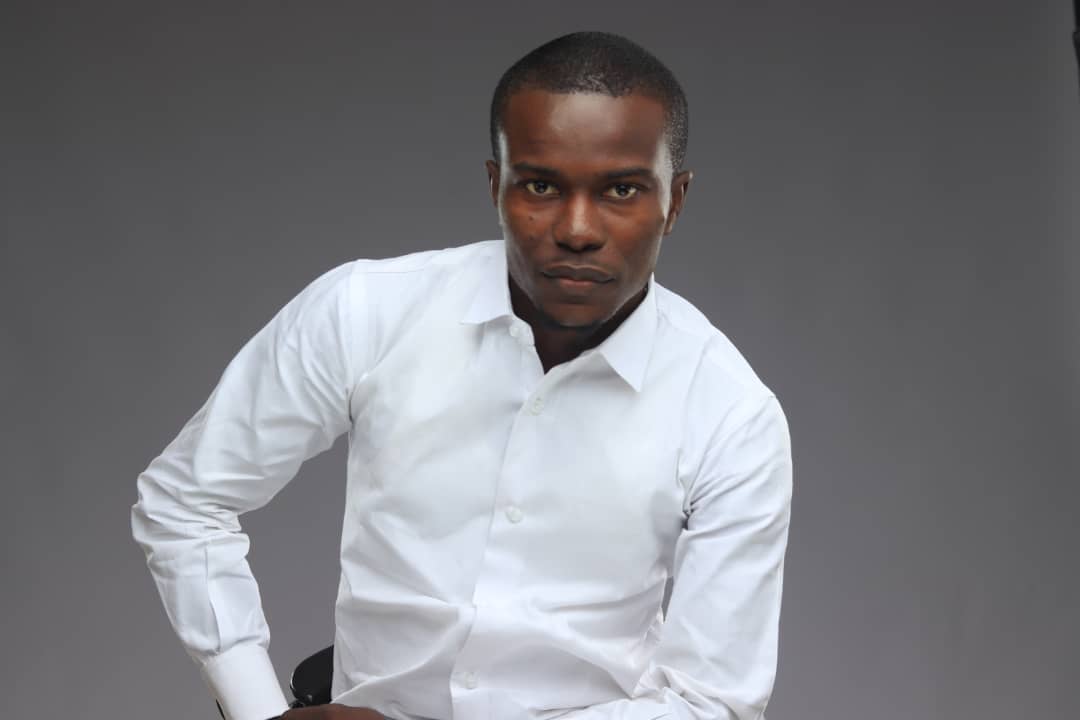Features
Mfonobong Inyang: The Tale of Two Men As a Representation for Nigeria Today

October is a special month for me, not only because it’s my birth month but because it’s also the month Nigeria celebrates its Independence. It’s always a cocktail of emotions; gratitude, grief and grit. Gratitude for every extra year I get to breathe on God’s green earth, grief for my country that has the potential to be a giant but is not gianting and grit because giving up is simply not on the table. As I pondered over the happenings that have defined Nigeria in recent years, two vivid stories came to mind. While these stories have ecumenical meanings, their striking similarities make them especially relevant to our country’s current situation.
A Lame Person At The Beautiful Gate
There is a nameless man who was stripped of his nomenclature and he was defined by his congenital dysfunction. We will never get to know his identity, aspirations or legacy because all his life, other people controlled the narrative of his destiny. He was far from being independent: he was who others said he was, he could only do what others said he could do and he could only go wherever others said. Nigeria has suffered similar reputational damage, the country has lost its notoriety amongst the committee of nations both on the continent and globally. We struggle to have a top name in education, currency, security, social infrastructure, economy, civil liberties and freedoms, technology, political leadership or even cultural cohesion. A lot of our policies are not determined by us, the numerous ‘policy advisory’ from intuitions across the Atlantic are well-documented. This speaks to the wider African continent too: every eke market day, we see leaders jump on jets with their endless retinue to attend supposedly pro-African conferences organised by others; hardly do we see world leaders coverage on African soil for the same purpose. It seems to me that every global bloc has a plan for Africa, except Africans themselves. Imagine others telling you that you cannot even exploit your resources.
We are a country with a median age of 18 years yet our political leadership is riddled with gerontocracy. We remove subsidies on public production (education, electricity, fuel) but subsidise private consumption (religious pilgrimage) with billions of naira which don’t add anything to the GDP. “Our problems are spiritual,” they say. We’re blessed; with crude oil but won’t refine it and citizens have to queue for hours to get PMS at exorbitant prices; with human and material resources but somehow have become the poverty capital of the world. We claim to be a federation but power in Abuja is non-centrifugal. We generate revenue without development, practice religion without reformation, build roads without enjoying safe transportation, have schools without sound education, own farmlands but suffer food insecurity, produce wealth without enterprise, install leadership without legitimacy and practise a democracy without adherence to the rule of law.
Asking For Alms
The saddest thing about this nameless man isn’t just that he lost the use of his legs. The decimation of his potential totally eclipses it. He could have been the richest, most talented or the most popular person the world has ever known but here he was, reduced to begging, living from hand-to-mouth. Nigeria, like the man, could be the richest in the world but here we are, falling off so badly to the point that we are outchea receiving grain from a country that is in an actual war for over two years. How did we end up as the country with the highest out-of-school children in the world? Nigeria is on the list of countries with the highest infant mortality rates in the world. Do you know that Nigeria is now the third-largest debtor to the World Bank’s International Development Association?
Expecting To Receive Something From Them
Implicit in this man’s story is an unfortunate conditioning. He had gotten to the point where he stopped believing in God for healing; he got to the point where he gave up on his dreams of ever walking. His ambitions as a child had withered and reduced to subsistence, he had become comfortable with just getting by. His condition struck me as familiar. It seems to me Nigeria has given up on being a superpower. We have become comfortable with our leaders being invited to conferences about never-materialising development plans and hustling for photo ops with global leaders. Our leaders junket the world not to secure foreign direct investments or negotiate favourable trade terms but to beg for aid. In the world we live in, there is no free lunch, if any organisation is giving us aid on one hand, it is using the other hand to advance socio-cultural, economic and political agendas. Our shock value for corruption is at a nadir, these days when grand larceny is discovered in the public sector, we say things like, “I know say e thief but at least e do road small”. Large swaths of the citizenry have given up on ever enjoying good governance; they have joined Adjustment FC – contorting to adapt to every abominable policy.
Today, most young people have given up on their educational dreams, hence you hear the saying, “School na scam”. They were told that education is the key but they feel that the country they were born into has changed the padlocks. Basic things like owning a car, building a house, 24/7 electricity, road trips and so on have increasingly become a fantasy and out of the imagination of most Nigerians. Just 2.4% of working Nigerians earn more than N200,000 ($120) monthly. The prospect of building generation wealth doesn’t exist to some people. They have been reduced to hustling for daily 2k. It seems the Nigerian dream is to leave Nigeria. We have moved from our parents freely travelling to certain countries to writing exams, showing proof of funds and promising to be well-behaved to get our visas into the same countries.
Such As I Have
All his life, this impaired man had lived off hand-outs, it became the norm. Perhaps the real reason this story is highlighted is to show us his real possibilities; not to be a beggar but to be bigger. Just so we are clear, those who gave him alms were not necessarily bad people but whether or not they knew it – they enabled him to live on the lowest level of Maslow’s Hierarchy. Peter and John didn’t come to give him fish but to empower him to fish for himself. There is nothing inherently wrong with Nigeria receiving foreign aid but we should be attracting more foreign direct investments. These two men are a metaphor for how leading nations should shape their foreign policy; especially in a world that is increasingly becoming multipolar. We must critically examine the relations that we have with certain countries and deduce whether or not such partnerships have empowered our possibilities or enabled our dysfunctions. Some of the country’s allies are not even as helpful with the pursuits of our strategic interests but because they have great PR – it will be hard to convince the average Nigerian otherwise. Yet, those we think are the scum of the earth have done most of the heavy lifting, especially regarding our infrastructural needs.
Meet The Patriots
Let’s talk about some family matters. Deep this, how come Nigeria has been conditioned into accepting that refineries will never work but now that we seem to have Africa’s largest refinery in play, look for yourselves at the rogbodiyan going on. If you don’t gerrit, then forget abourrit. How come some people were comfortable with young people not voting? Still, the same people unleashed the highest levels of skulduggery we have ever seen when young people decided to engage in the political process? Don’t you find it interesting that during every election cycle, certain people claim to sit on the fence? Still, somehow they always reach a consensus to attack the most competent candidate running for office. How come people who claimed that military rule was a curse are now sabotaging democracy which is supposed to be a solution?
Some people are indifferent to your buying fuel at over a thousand naira, your inability to afford exorbitant rents, your struggle to pay for your children’s education, your challenges with adequate feeding and leading a decent life with your family but the moment you speak up or protest against bad governance, they come out swinging, accusing you of being a threat to democracy and trying to overthrow the government. Make no mistake, the Pharisees were a people then, today it’s a philosophy – a thinking that is indifferent to dysfunction but actively tries to sabotage the solution. The problems of Nigeria might appear complex but patriots must deconstruct them by asking themselves the right questions. As Nigeria marks another year of ‘independence’, mark this saying as true and worthy of all acceptance: beware of the leaven of the Pharisees. Selah.



















